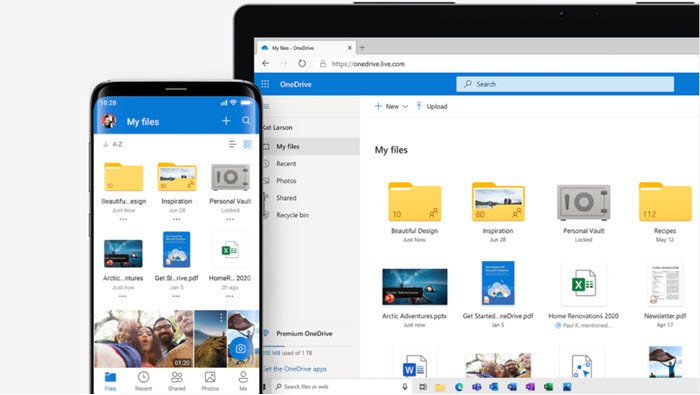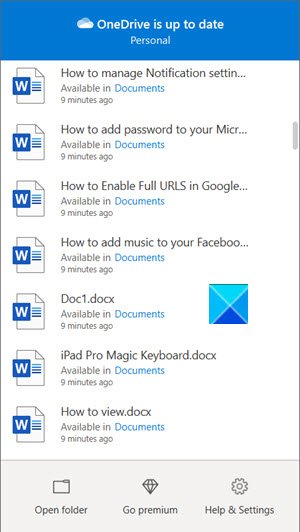Microsoft’s cloud storage solution rolled out a public preview of the OneDrive 64-bit sync client for use with OneDrive Home, Work, and School accounts. The company says the 64-bit version of OneDrive is the right option for users but does all systems with separate configurations and equipped with different infrastructure capable of supporting it? So, which version, OneDrive 64-bit or OneDrive 32-bit is right for you? We’ll help you figure it out!

Is OneDrive 64-bit or OneDrive 32-bit right for you?
It is important to mention here that the current release hasn’t reached the maturity of a general availability release but still, users interested in trying can download and install it.
The 64-bit version of OneDrive was among the most requested features. The Windows feedback page revealed the request for a 64-Bit OneDrive had garnered over 15,000 votes, by far the highest number among all OneDrive suggestions, and believe us, this was for a reason.

The problem with running 32-bit software on a 64-bit version of Windows was that 32-bit programs could access only 4GB of system memory even on systems with higher amounts of memory. So, by making OneDrive available as a native 64-bit application, the software can now use more of its available RAM. With this change, users will likely experience improvement in performance as 64-bit systems would be able to access more resources than their 32-bit counterparts.
Another plus point, the file backup, and the syncing tool in OneDrive will handle large files in a better way. For instance, people who prefer sending or transferring large files or many files at the same time can do it without hassles. Computers running 64-bit versions of Windows generally have more resources. Also, 64-bit applications can access more memory than 32-bit applications (up to 18.4 million Petabytes).
Having said that, it is important to remember the 64-bit operating system with ARM-based processor and 32-bit operating system with an x86 (32-bit) processor can only install 32-bit OneDrive.
Which version of Windows are you using?
If you aren’t sure which version of the Windows operating system your computer supports, here’s a way to find out quickly.
- Press the Win+R, to open the Run dialog box.
- Type ‘winver‘ in the empty field of the box, and then select OK.
- You’ll find the necessary information.
Alternatively, click the Start button, go to Settings > System > About.
- Open About settings.
- Here, under Device specifications, choose System type to find the information you are looking for i.e., whether you’re running a 32-bit or 64-bit version of Windows.
Which version of OneDrive are you using?
- Open OneDrive
- Select Help & Settings
- Select Settings > About.
- Under About Microsoft OneDrive you will see it.
Microsoft suggests, if you have a 64-bit operating system with an x64-based processor, you can choose to install either the 32-bit or 64-bit OneDrive.
Lastly, we would recommend that Surface Pro X users with an Arm processor should not upgrade to the OneDrive 64-bit Sync client. They should continue using the 32-bit version of OneDrive.

Once, you’ve set up OneDrive, you can add items, drag or move them into the folder. Then, to let other people view and edit your files, you can share them. You can also work on folders that are shared with you.
Conclusion
OneDrive 64-bit version is the right choice if you plan to use large files, if you have a lot of files, and if you have a computer that’s running a 64-bit version of Windows. The 64-bit version of OneDrive is available as a public preview currently and you can download it here.
Hope it helps!